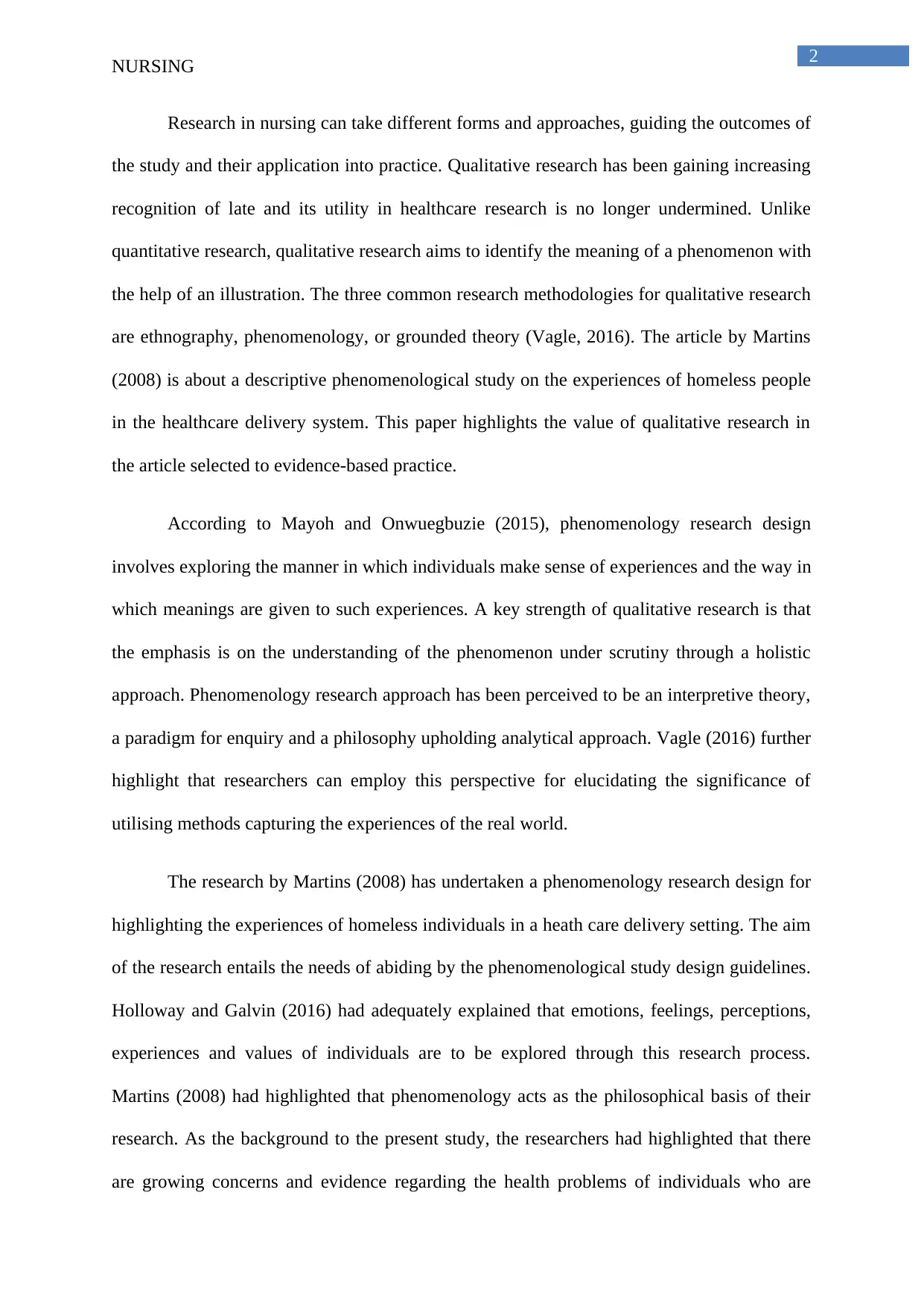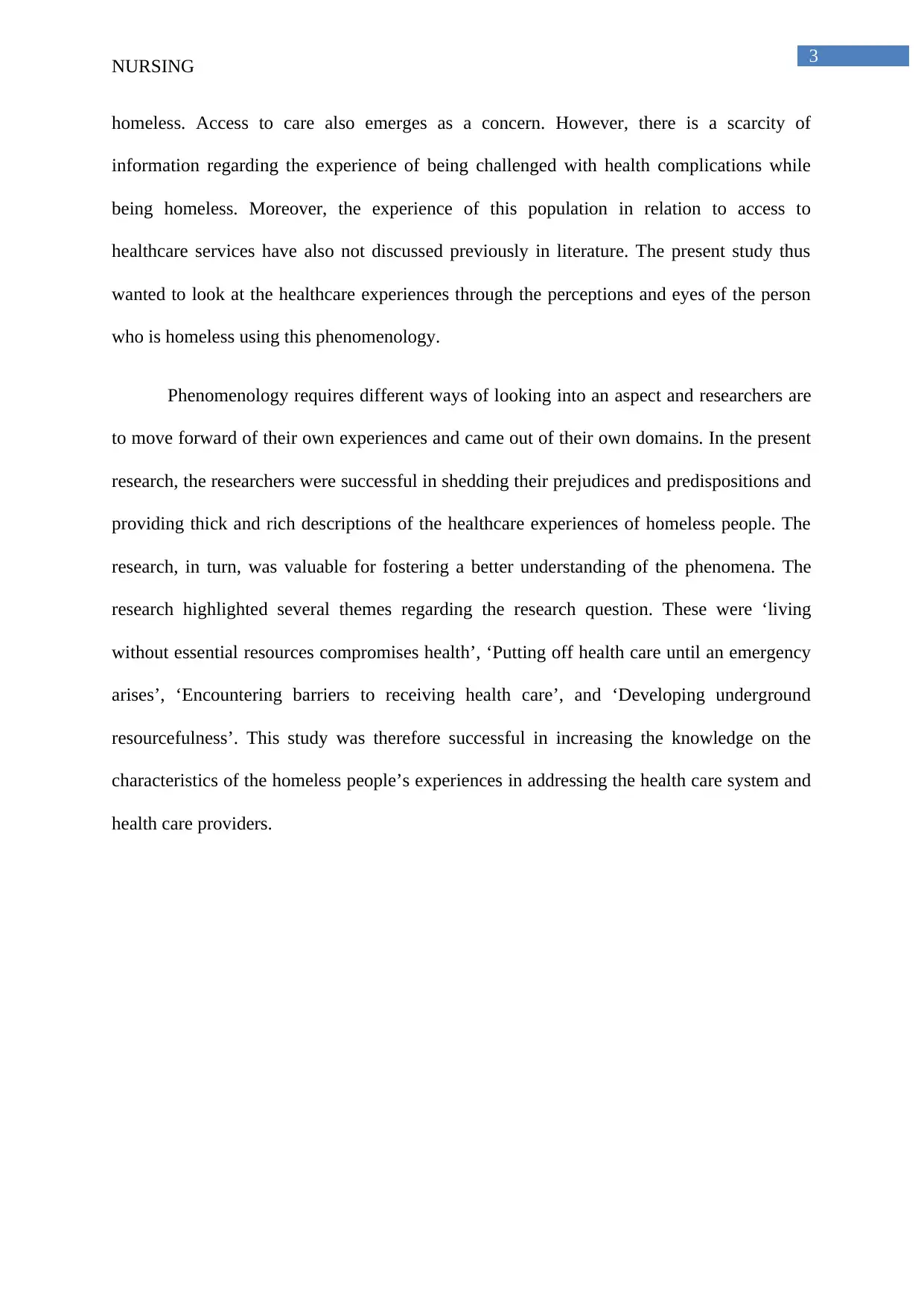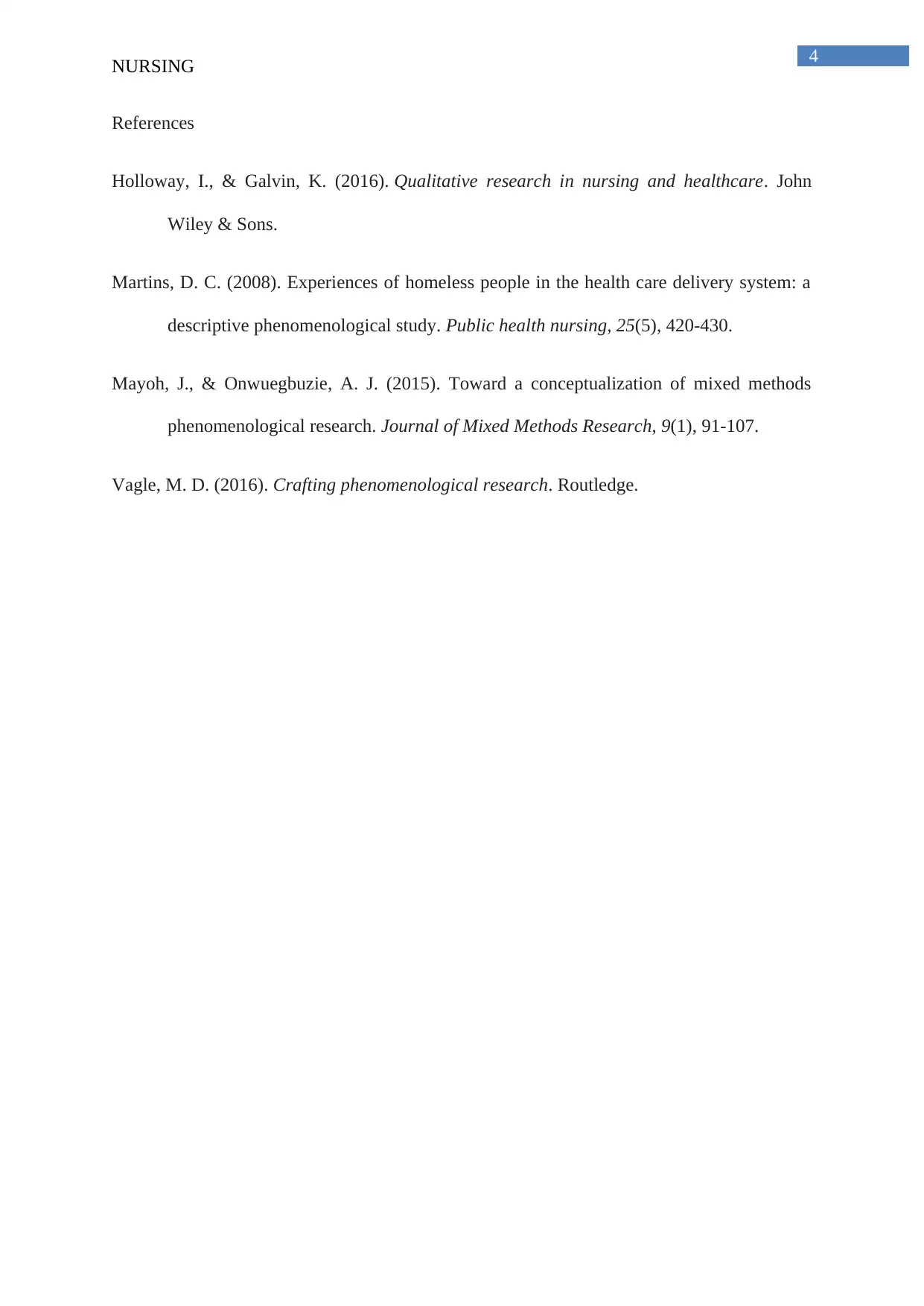Analysis of Qualitative Research: Nursing Report, University of Name
VerifiedAdded on 2020/04/21
|4
|712
|162
Report
AI Summary
This report analyzes a nursing study that employs qualitative research methods, specifically focusing on a descriptive phenomenological study examining the experiences of homeless individuals within the healthcare delivery system. The report highlights the importance of qualitative research in evidence-based practice, contrasting it with quantitative approaches by emphasizing the understanding of phenomena through holistic means. The study, based on Martins (2008), explores the challenges faced by homeless individuals, including barriers to accessing healthcare, and the development of coping mechanisms. The research identifies key themes such as the impact of lacking essential resources, delayed healthcare seeking, and difficulties in accessing care. The report references key literature including Holloway and Galvin (2016), Mayoh and Onwuegbuzie (2015), and Vagle (2016) to provide context and support the analysis, underscoring the value of understanding individual experiences in healthcare to improve service delivery and patient outcomes. The report emphasizes the importance of researchers setting aside their biases to provide rich, detailed descriptions of the phenomena under investigation.
1 out of 4











![[object Object]](/_next/static/media/star-bottom.7253800d.svg)